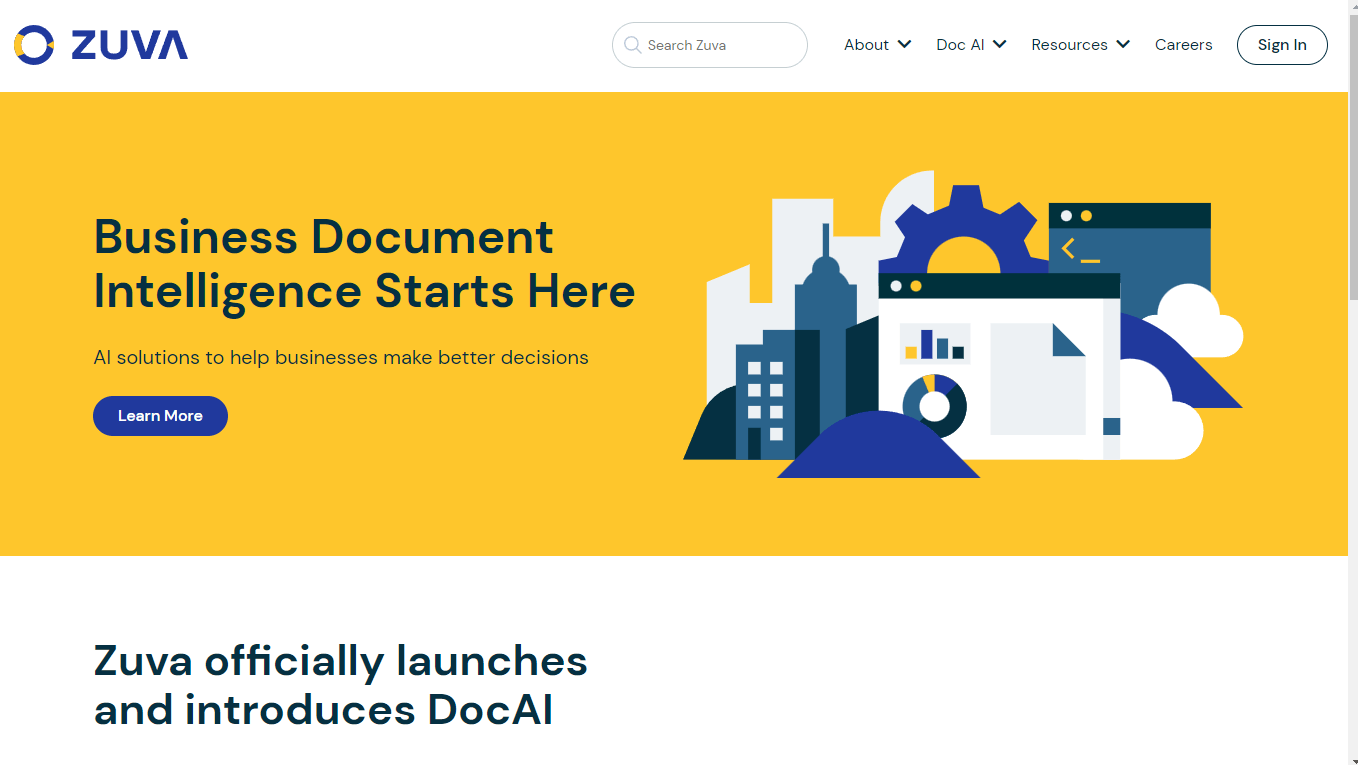Seven weeks ago, as Litera announced its acquisition of Kira Systems, the pioneering AI contract analysis company, Kira announced the spin off of a new company, Zuva, to continue developing machine learning technology for business documents.
Now, Zuva is off to a running start, announcing today that it has secured Series A funding of $20 million and is launching its first product, DocAI, an API-driven platform targeted at the corporate market that will enable developers to implement AI within applications without having to build their own AI from the ground up.
The funding was led by private equity firm Insight Partners, which has been an investor in Kira since 2018 and which became a minority investor in Litera as part of Litera’s acquisition of Kira.
The funding announced today was actually closed at the time of the Litera acquisition, but was not announced then so as not to divert the spotlight from that deal, according to Noah Waisberg, the cofounder and former CEO of Kira who is now CEO of Zuva. (Kira’s other cofounder, Dr. Alexander Hudek, is also joining Zuva as strategic advisor.)
First Product Release
DocAI is Zuva’s first product release, with a second slated to be released later this year. It is built on the same underlying machine learning technology as Kira, but its API deployment allows customers to use it to add AI to their own document-focused applications.
According to Zuva, DocAI can classify documents and extract key clauses written in non-standard natural language from business contracts and documents. It comes with over 1,200 pre-trained AI models, and users can also create their own models without requiring data science or machine learning development knowledge.
Customers can host DocAI on Zuva’s cloud platform or on their own infrastructure on Kubernetes.
“If you incorporate Zuva’s DocAI, you get what was already the best-in-class contract performance, you get all the data points that Kira already had built in, and you can do it in an afternoon,” Waisberg said.
“It’ll be better than what you could build yourself in a ton less time and actually cost you a lot less money because you won’t have to support it.”
Zuva has already signed two customers, MNTSQ and Vigilant AI, and others are likely to be announced soon, Waisberg said.
MNTSQ, a company that developed AI technology for performing due diligence on Japanese-language contracts, will use DocAI to add analysis of English-language documents.
Vigilant AI will use the technology in a cost-recovery product that examines vendor activity for potentially recoverable claims.
‘Potential to Dwarf the Market’
Waisberg said that DocAI had been in development well before Kira’s acquisition by Litera and had been slated for release this month even before the spin-off.
“There are tons of different workflows,” Waisberg explained. “Instead of trying to build every single workflow or make every single workflow — make Kira work for every single workflow — the better move was just to give people the underlying tech and then let them build it in.”
Waisberg said that Zuva’s second product will be, like Kira, more focused on a specific contract workflow, but where Kira is targeted primarily at law firms, this second product will be targeted at corporations.
Waisberg emphasized that the focus will not be solely on corporate legal departments, but on any contracts workflow within an enterprise.
“There is this whole contracts market that exists independent of what we think of as the contracts market,” Waisberg said, “and I think it has the potential to dwarf the contracts market we see today.”
Waisberg, a former corporate lawyer with Weil, Gotshal & Manges in New York, and Hudek, a computer scientist, founded Kira in 2011, originally under the name DiligenceEngine (which I reviewed in 2014). The company developed what was the first of a now-common class of products that use machine learning for contract review and analysis.
Earlier this year, I interviewed Waisberg and Hudek for my LawNext podcast, where they shared their story of starting and building the company.
 Robert Ambrogi Blog
Robert Ambrogi Blog